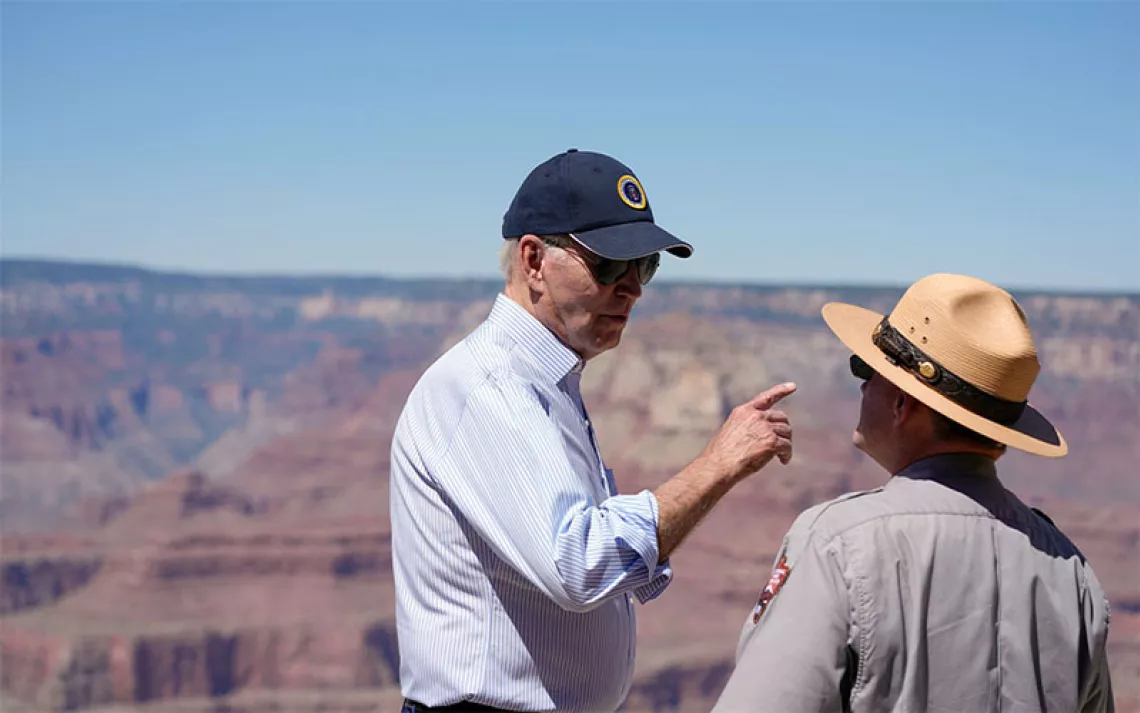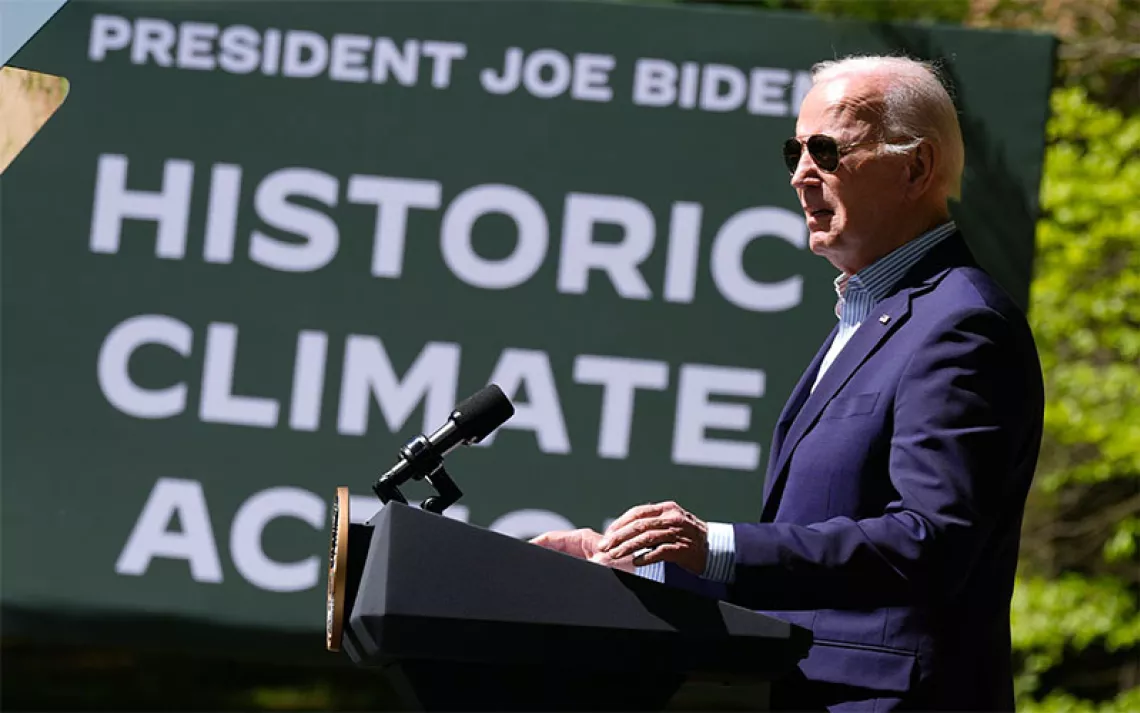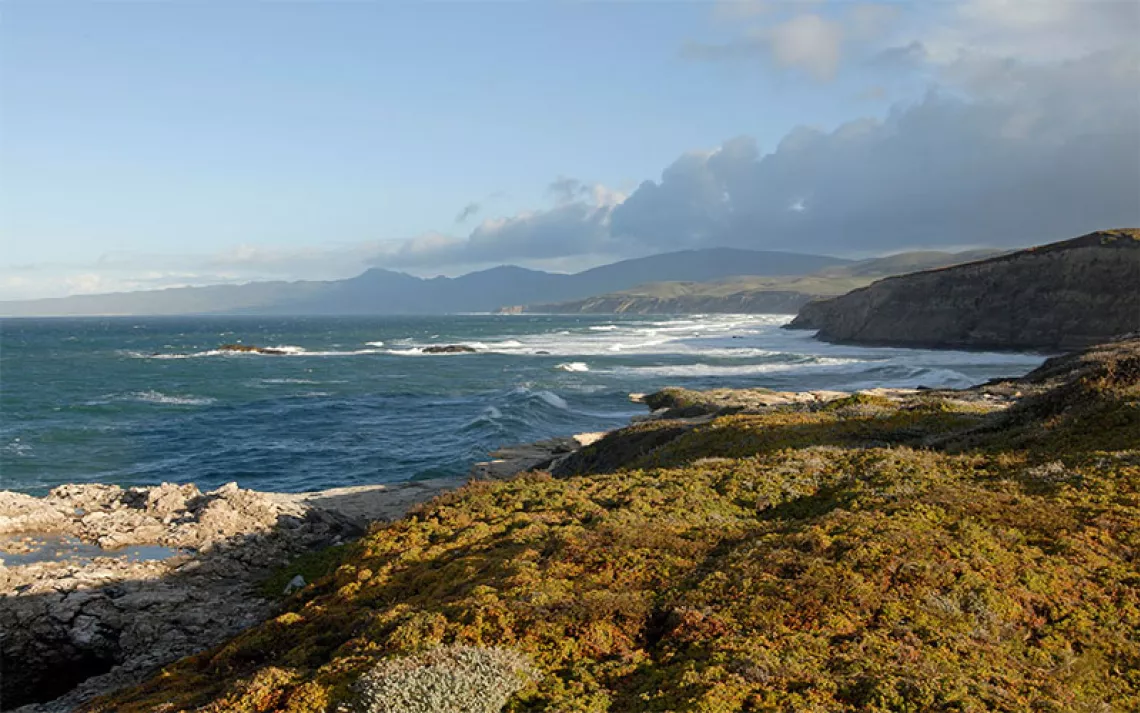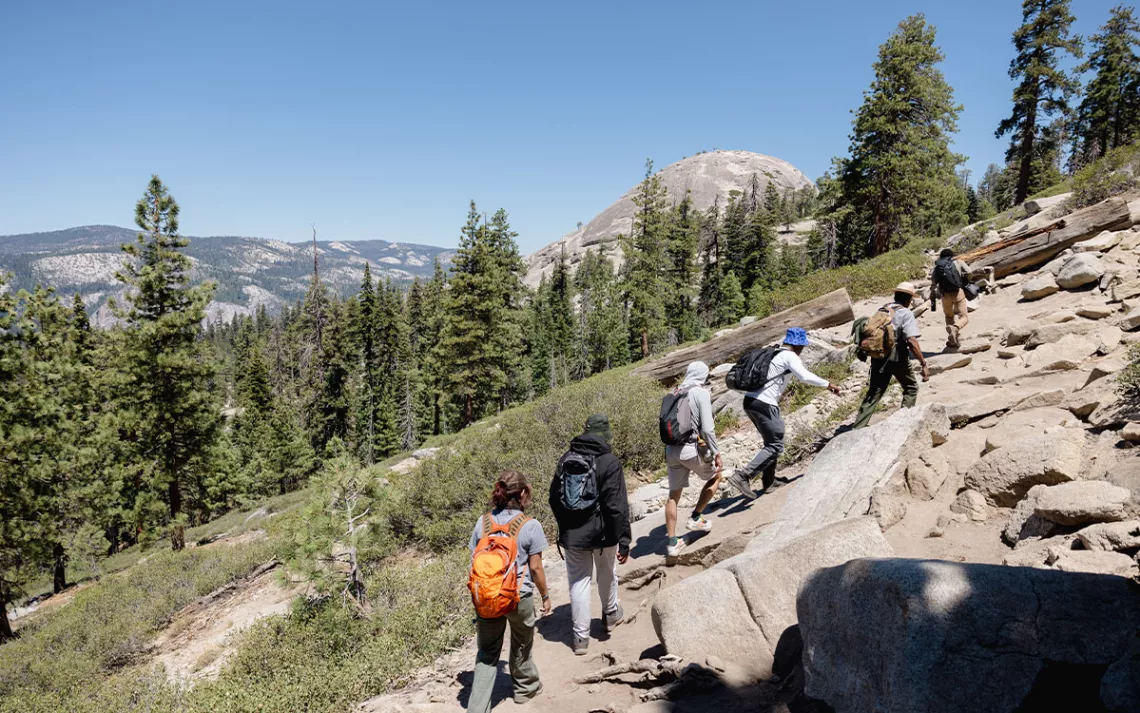President Biden Should Protect Sacred Lands
Nevada needs Biden to permanently protect Avi Kwa Ame—a.k.a. Spirit Mountain

Photo by Alan O’Neill
The opinions expressed here are solely those of the writer and do not necessarily reflect the official position of the Sierra Club.
Nevada has some of the most spectacular parks and public lands to be found anywhere in the United States. The state’s amazing landscapes are one of the first things I appreciated after moving here years ago, and they are a huge reason why I continue to call the state home. From Red Rock Canyon and Gold Butte in southern Nevada, to Great Basin National Park and the Ruby Mountains in the northeast, to the Sheldon Wildlife Refuge and the shores of Lake Tahoe, every corner of Nevada has beautiful landscapes and unique natural resources.
Our state prides itself on being a conservation leader, ensuring we prioritize the protection of lands and waters. During the 2021 legislative session, Nevada took major steps to protect our incredible natural areas. We became the first state to pass a resolution in support of conserving 30 percent of our lands and waters by 2030. This followed President Biden’s executive order that committed our country to the 30x30 goal, setting our first national conservation goal and prioritizing locally led efforts.
The Nevada legislature led other key conservation initiatives as well. We passed a first-in-the-nation ban on nonfunctional, nonresidential turf grass, which will help preserve water in the face of increasing droughts across the region. We created a dark sky designation process to promote areas without light pollution. And we defeated an in-state resolution that urged Congress to direct the Bureau of Land Management to sell off more Nevada public lands.
Of course, there is always more conservation work to be done. One of Nevada’s unique natural areas needs protection, and President Biden can deliver it.
At the southern tip of Nevada is Avi Kwa Ame. Also known as Spirit Mountain, it is one of the most visually stunning, biologically diverse, and culturally significant lands in the Mojave Desert. It features staggering peaks more than a mile high, canyons, natural springs, and the biggest Joshua tree forest in the world, including trees that are over 900 years old. The area is a hot spot of biological diversity, providing habitat for plants and animals, including the desert tortoise, golden eagles, bald eagles, and the desert bighorn sheep.
There is strong, and growing, local support for permanent protection for Avi Kwa Ame that could span more than 380,000 acres with outstanding ecological, cultural, recreational, and scenic values. The Boulder City Council and the Searchlight Town Advisory Board—the governing bodies for two of the closest communities—have already voted to support the monument proposal. Statewide, a September poll by Data for Progress found that 62 percent of Nevadans support the creation of the monument, compared with just 19 percent who are opposed.
Permanent protection for Avi Kwa Ame is a crucial step in the preservation of Indigenous ancestral lands in the Southwest. The proposed monument is held sacred by the Hopi and Chemehuevi Paiute. Spirit Mountain is also tied to the creation and cosmology of Yuman-speaking tribes including the Mojave, Halchidhoma, Pai Pai, Kumeyaay, Maricopa, Quechan, Cocopah, Hualapai, Havasupai, and Yavapai.
Conserving our land and waters not only protects the environment and cultural assets. It promotes the vibrant industry of outdoor recreation, which is especially important for rural communities. The US Bureau of Economic Analysis says that outdoor recreation in Nevada generates over $5.5 billion annually and is responsible for nearly 60,000 Nevada jobs.
Nevada is fully committed to conservation and responsible management of our public lands. We have a long history of working collaboratively with public officials and private landowners to reach conservation goals and expand access to nature. We need President Biden to permanently protect Avi Kwa Ame and preserve the ecological, cultural, and recreational resources there for future generations.
 The Magazine of The Sierra Club
The Magazine of The Sierra Club



